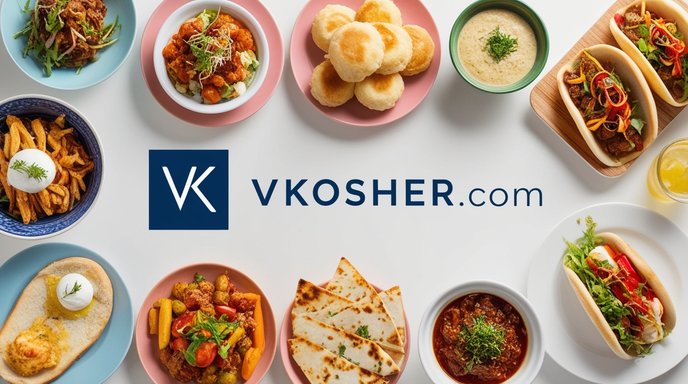Understanding Kosher: A Guide to Dietary Laws and Practices
Introduction to Kosher
Kosher, a term derived from the Hebrew word "kashér," meaning "fit" or "proper," refers to a set of dietary laws and regulations that govern the foods that are permissible for consumption according to Jewish law. These laws, known as kashrut, are detailed in the Torah, particularly in the books of Leviticus and Deuteronomy, and have been interpreted and expanded upon by rabbinical authorities over the centuries. The practice of keeping kosher is central to the daily life of observant Jews, reflecting their commitment to the religious traditions and ethical principles of Judaism.
The Origins of Kosher Laws
The origins of kosher laws can be traced back to the earliest days of Judaism, when the dietary rules were established as part of the covenant between God and the Jewish people. These laws were intended not only to guide the physical nourishment of the Jewish community but also to instill a sense of spiritual discipline and moral responsibility. The meticulous attention to detail in the preparation and consumption of food serves as a constant reminder of the presence of the divine in everyday life.
Kosher laws encompass a wide range of guidelines, including which animals may be eaten, how they must be slaughtered, and the prohibition against mixing meat and dairy products. These laws are not merely about the physical aspects of food; they also embody deeper spiritual and ethical teachings. For example, the humane treatment of animals is a core principle of kashrut, reflecting the Jewish belief in the sanctity of all life.
Permissible Animals and Their Preparation
One of the most well-known aspects of kosher law is the classification of animals that are considered permissible for consumption. According to the Torah, only certain animals are deemed kosher, and they must meet specific criteria. Land animals, for example, must have cloven hooves and chew their cud. This means that animals such as cows, sheep, and goats are kosher, while pigs and rabbits are not. Similarly, only certain species of birds, such as chickens, ducks, and turkeys, are considered kosher, while others, like eagles and owls, are prohibited.
In addition to the type of animal, the method of slaughter is also a crucial aspect of kashrut. The process, known as shechita, must be performed by a trained and certified individual known as a shochet. The shechita process involves a swift and precise cut to the animal's throat, which is intended to minimize pain and suffering. This method is believed to be the most humane way to slaughter animals and reflects the Jewish emphasis on compassion and respect for all living beings.
After slaughter, the meat must be thoroughly inspected for any signs of disease or abnormalities. Any meat that does not meet these strict standards is deemed treif, or non-kosher, and cannot be consumed. The meat must also be soaked and salted to remove any remaining blood, as the consumption of blood is strictly prohibited in Jewish law.
The Separation of Meat and Dairy
Another fundamental principle of kosher law is the prohibition against mixing meat and dairy products. This law is based on a verse in the Torah that forbids "boiling a kid in its mother's milk." Over time, rabbinical authorities have interpreted this verse to mean that meat and dairy must be kept entirely separate, both in the kitchen and in the diet.
This separation extends to all aspects of food preparation and consumption. For example, kosher households typically have separate sets of utensils, cookware, and dishes for meat and dairy. Even the preparation areas and appliances, such as ovens and refrigerators, are often divided to prevent cross-contamination. The time between consuming meat and dairy also varies among different Jewish communities, with some observing a waiting period of several hours before switching from one to the other.
The separation of meat and dairy is one of the most distinctive features of a kosher diet and requires a high level of vigilance and commitment. It serves as a constant reminder of the importance of mindfulness and intentionality in all aspects of life, not just in matters of food.
Kosher Certification and Supervision
In today's globalized food industry, ensuring that products meet kosher standards can be a complex task. To assist consumers, various organizations provide kosher certification, which guarantees that a product has been produced in accordance with kashrut laws. These certifications are often indicated by symbols, known as hechsherim, on product packaging.
Kosher certification agencies employ teams of inspectors, known as mashgichim, who visit food production facilities to oversee the preparation and processing of kosher foods. These inspectors ensure that all ingredients are kosher, that the equipment is properly cleaned and maintained, and that the separation of meat and dairy is strictly observed.
For many Jewish consumers, the presence of a reliable hechsher on a product is essential when making food choices. It provides assurance that the product has been prepared with the highest standards of kashrut in mind, allowing them to maintain their religious observance with confidence.
Kosher for Passover
In addition to the year-round kosher laws, there are additional dietary restrictions that apply during the Jewish holiday of Passover. During this time, Jews are prohibited from consuming chametz, which includes any food made from wheat, barley, rye, oats, or spelt that has been allowed to ferment. This prohibition is in remembrance of the haste with which the Israelites fled Egypt, leaving no time for their bread to rise.
To comply with this restriction, many Jews switch to a special set of Passover dishes and cookware and purchase foods that are certified as kosher for Passover. These foods are produced under stringent conditions to ensure that they contain no traces of chametz. The preparation for Passover often involves a thorough cleaning of the home to remove any chametz, a process known as bedikat chametz.
The observance of kosher for Passover is a significant part of Jewish tradition and requires careful planning and attention to detail. It is a time when the entire community comes together to commemorate the Exodus and to renew their commitment to the principles of kashrut.
The Modern Kosher Movement
In recent years, the concept of kosher has expanded beyond the traditional Jewish community, attracting interest from a broader audience. Many people choose kosher products because they perceive them as being of higher quality or because they align with their own dietary preferences, such as vegetarianism or concerns about animal welfare.
This growing demand for kosher products has led to the availability of a wide range of kosher-certified foods in mainstream supermarkets. It has also spurred innovation in kosher food production, with new products and flavors being introduced to meet the needs of diverse consumers.
The modern kosher movement reflects a broader trend toward conscious eating, where individuals are increasingly mindful of the ethical and spiritual implications of their food choices. For Jews and non-Jews alike, keeping kosher can be a way to connect with a tradition of mindfulness, discipline, and respect for life.
Conclusion: The Significance of Kosher
Kosher is more than just a set of dietary rules; it is a way of life that embodies the values and teachings of Judaism. For those who observe kashrut, keeping kosher is a daily expression of their faith and commitment to their religious heritage. It is a practice that connects them to their community, their history, and their spirituality.
At its core, kosher is about mindfulness—being aware of what one eats, how it is prepared, and the impact it has on the body and soul. It is a practice that encourages discipline, ethical behavior, and a deep respect for the sanctity of life. Whether one observes kashrut strictly or is simply interested in learning about it, understanding kosher offers valuable insights into the rich tapestry of Jewish tradition and the enduring importance of food in our lives.




